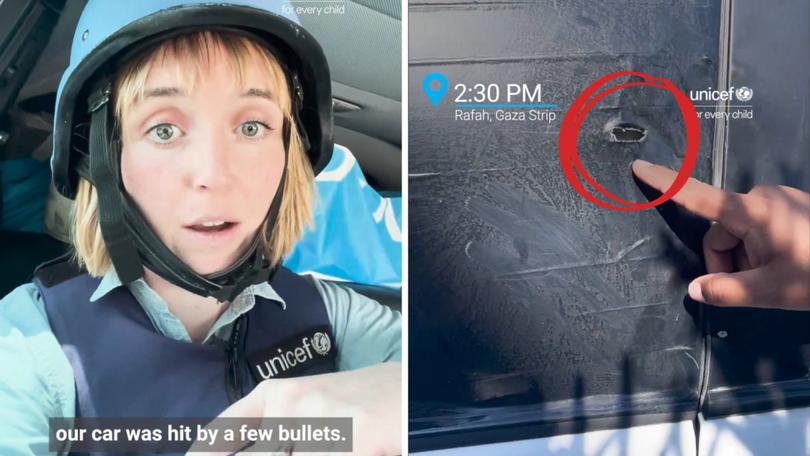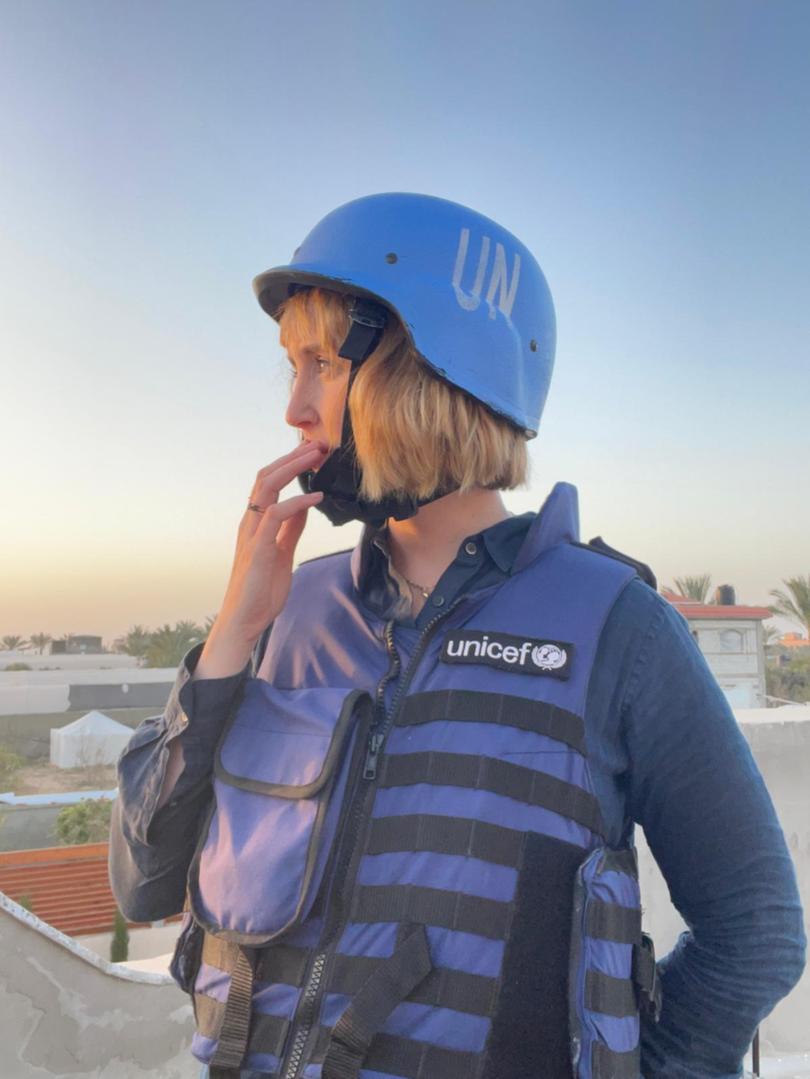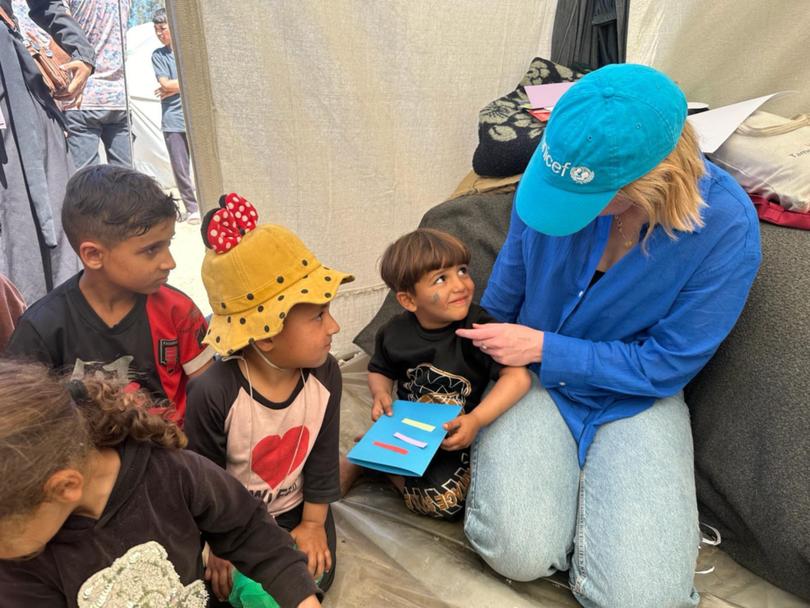Australian aid worker Tess Ingram describes moment she was shot at in Gaza
The terrifying encounter came less than two weeks after the death of fellow Australian Zomi Frankcom.

It was a long morning of waiting and negotiating with the Israeli Defence Force, ticking all the boxes so their United Nations convoy of three cars and two trucks stuffed with water, fuel, medicine and nutritional support could safely travel to famine-stricken northern Gaza on Tuesday.
Australian aid worker Tess Ingram, who landed for this trip to Gaza on the same day her compatriot and fellow humanitarian volunteer Zomi Frankcom was killed by an Israeli airstrike, was growing increasingly frustrated by the delay near a checkpoint leading out of Rafah.
Then the bullets started flying.
Sign up to The Nightly's newsletters.
Get the first look at the digital newspaper, curated daily stories and breaking headlines delivered to your inbox.
By continuing you agree to our Terms and Privacy Policy.“We were on the side of the road in a designated holding area where convoys are often asked to wait before approaching the checkpoint, and it was there when gunfire broke out,” Ms Ingram, a communications officer with the UN children’s charity, UNICEF, told The Nightly.
“The gunfire seemed to be coming from the north, from the direction of the checkpoint, towards civilians who then turned and ran away from the checkpoint.
“Three bullets hit our car and other bullets hit the road around the cars. But yes, I watched as the bullet hit my window and my door of the car and ... thank God it was an armoured vehicle.”
Ms Ingram, a former Perth newspaper journalist, said the frightening moment passed quickly and that the worst part of the experience was the fact that the delivery was delayed.
“We tried to go ahead with the mission, even after all of that, but we were still delayed at that holding point for at least another two hours, if not more, and to the point where the mission was no longer feasible,” she said.
Among the stalled delivery were ready-to-use therapeutic meals, a treatment that UNICEF uses to try to keep malnourished children alive during famine, as well as fresh water.
“It basically provides provides all of the micronutrients that the body needs to begin taking food again, because when they are that malnourished, it’s very hard to just start eating straight away,” she said.
“The point of this mission was to take it to that hospital where we know that at least 23 children have already died from malnutrition.
“So to me, the tragedy here was that of course there was this really dangerous incident, but ... we didn’t get to deliver that aid.”
Ms Ingram said the checkpoint was manned by Israeli personnel and that UNICEF had notified both the Israeli and Australian governments.

Israel has apologised for the “mistake” that resulted in Ms Frankcom’s convoy being hit by up to three airstrikes, killing seven aid workers. Ms Ingram said the fact humanitarian workers were targeted “speaks to the volatility of the war that’s being conducted and how it’s impacting aid workers and impacting children”.
“Mistakes like this shouldn’t be happening. These coordination mechanisms work in other parts of the world during conflict so there’s no reason that they cannot work in Gaza,” she said.
“This war is so indiscriminate and it is impacting civilians at a huge scale. We know that more than 14,000 Palestinian children reportedly have been killed. And I see it in the hospitals here. This week I’ve met so many kids who have been injured by this war, bullets, explosions, lost limbs, severe breaks and injuries.
“So you know, this happened to us, but it also happens to Palestinians every day.”

Based in New York, Ms Ingram has visited Gaza several times and will be leaving Gaza on Monday, something she has “complicated” feelings about.
“I will be a bit relieved and I will be sad to leave because the work here is just feels like the most important thing that I could be doing right now,” she said.
“But it has been a really big two weeks so this time, I’m looking forward to a little bit of respite. And you know, it’s hard to say that when Palestinians get no respite from this for six months.”
More than 200 aid workers have been killed in the conflict since Hamas terrorists invaded Israel on October 7 last year.
UNICEF released a statement saying: “Sadly, humanitarians continue to face risks in delivering lifesaving aid. Unless humanitarian aid workers are protected, in accordance with [international humanitarian law], humanitarian aid cannot reach people in need”.

